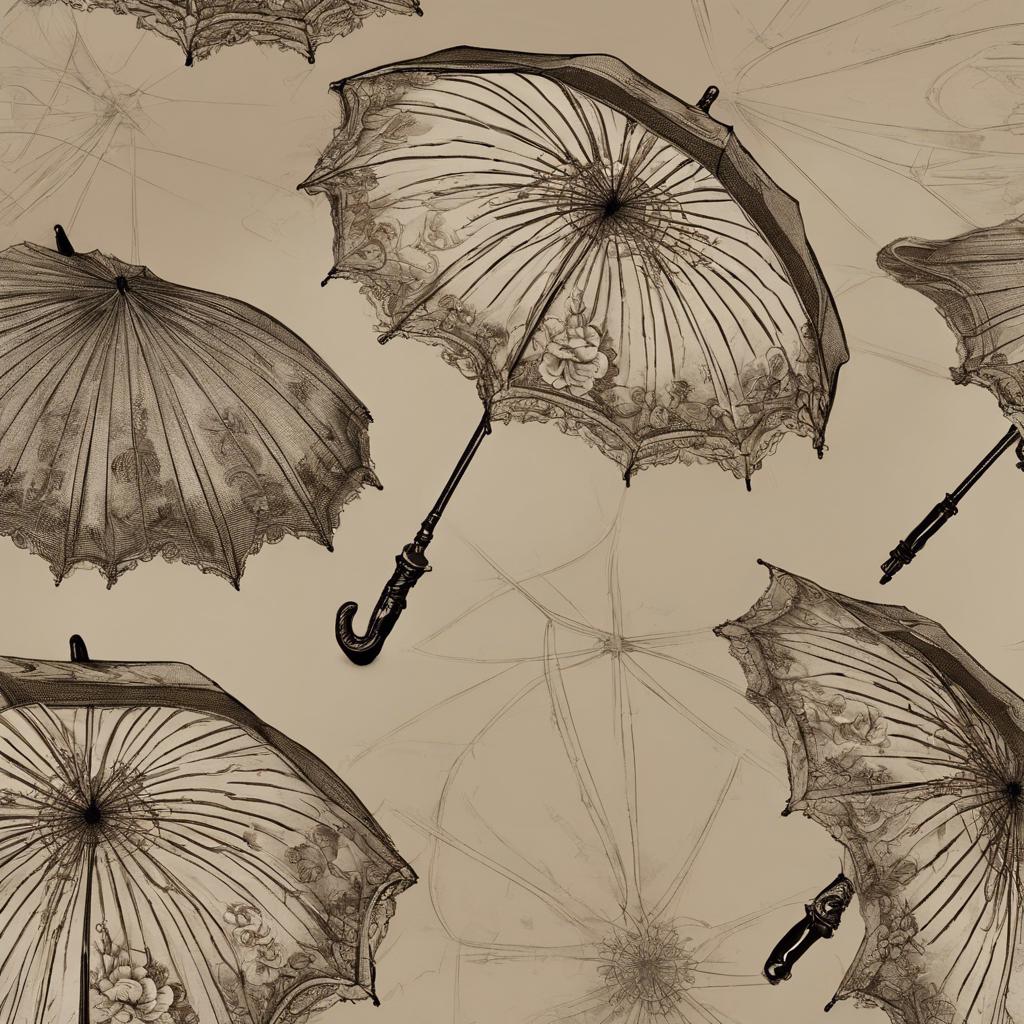In the elegant and refined world of Regency-era England, the umbrella was not merely a practical shield against the elements, but a fashionable accessory that spoke volumes about one’s social standing. As society’s elite navigated the complexities of courtship and societal norms, their choice of umbrella served as a subtle yet significant symbol of their taste and refinement. Join us as we explore the history and significance of the Regency era umbrella, shedding light on its role in shaping the sartorial landscape of the early 19th century.
Step Into the World of Cheryl Bolen
Dive into the enchanting stories of love, intrigue, and elegance set in the Regency Era. Cheryl Bolen's novels offer timeless romance and captivating tales that will leave you wanting more.
Explore Cheryl Bolen's Books Now
Background of the Regency Era Umbrella
The Regency Era umbrella, also known as the “parasol,” was a popular accessory during the early 19th century in England. This period in history, spanning from 1811 to 1820, was characterized by the distinctive fashion and cultural norms of the time. The umbrella played a significant role in both practicality and style for men and women of high society.
During the Regency Era, umbrellas were primarily used to shield individuals from the sun rather than the rain. Made of delicate fabrics such as silk, these parasols were often adorned with ornate designs and intricate patterns. The handle of the umbrella was typically crafted from materials like ivory, wood, or metal, adding a touch of elegance to the accessory.
One of the most iconic features of the Regency Era umbrella was its collapsible design, allowing for easy portability and storage. This innovation made the umbrella a convenient accessory for social gatherings, outdoor events, and leisurely strolls through the countryside. The popularity of the umbrella during this time period symbolized not only practicality but also sophistication and refinement.
Materials and Designs Used in Regency Era Umbrellas
In the Regency Era, umbrellas were not only practical accessories for protecting individuals from the rain, but they also served as fashionable statements of style and wealth. The materials used in crafting these umbrellas were carefully chosen to reflect the elegance and sophistication of the time period.
One common material used in Regency Era umbrellas was silk. Silk fabric was lightweight, making it easy to carry around, and its smooth texture added a touch of luxury to the umbrella. Many umbrellas featured intricate patterns and designs on the silk canopy, showcasing the craftsmanship and attention to detail that was characteristic of the era.
In addition to silk, Regency Era umbrellas also often incorporated materials such as wood, metal, and ivory into their designs. The handle of the umbrella would typically be made of wood or ivory, carved with intricate designs or topped with embellishments like jewels or tassels. Metal ribs were used to support the canopy, providing a sturdy structure that could withstand the elements while still remaining stylish and elegant.
Significance of the Parasol in Regency Fashion
During the Regency era, the parasol was not just a simple accessory to shield from the sun, but a symbol of status and fashion. In an era where modesty and decorum were highly valued, the parasol served as a fashionable way for ladies to protect their delicate skin from the sun’s rays. It was considered essential for a lady to carry a parasol as part of her ensemble, adding an elegant touch to her outfit and showcasing her social standing.
The parasol also played a practical role in Regency fashion:
- It helped to keep the sun off delicate fabrics such as silk and lace, preventing them from fading or becoming damaged.
- It provided a sense of privacy and protection for the wearer, shielding them from prying eyes while out in public.
| Parasol Features | Description |
|---|---|
| Materials | Silk, lace, and delicate fabrics adorned with decorative trims. |
| Handle | Carved ivory, mother-of-pearl, or decorative metals. |
the parasol was a significant accessory in Regency fashion, both for its practical use and its symbolic importance. It reflected the social norms and etiquette of the time, while also adding a touch of elegance and sophistication to the wearer’s attire. In a society where appearance and presentation were paramount, the parasol was a must-have accessory for any fashionable lady during the Regency era.
Maintenance and Care Tips for Regency Era Umbrellas
When it comes to preserving the beauty and functionality of your exquisite regency era umbrella, proper maintenance and care are essential. Here are some valuable tips to ensure that your classic accessory remains in pristine condition for years to come:
- Store Properly: When not in use, make sure to store your regency era umbrella in a cool, dry place away from direct sunlight. Avoid leaving it in damp or humid conditions, as this can cause the fabric to deteriorate.
- Clean Gently: To clean the fabric of your umbrella, use a soft, damp cloth to gently wipe away any dirt or dust. Avoid using harsh chemicals or abrasive materials, as these can damage the delicate fabric.
- Handle with Care: Always handle your regency era umbrella with care to prevent any damage to the delicate frame and fabric. Avoid opening or closing it forcefully, and be gentle when using it in windy conditions.
To Wrap It Up
the regency era umbrella stands as a symbol of not only practicality and fashion but also of societal norms and traditions of a bygone era. Its evolution from a mere protection against the elements to a fashion statement for the upper class encapsulates the intricate tapestry of history and culture woven throughout the regency period. As we reflect on the significance of this humble accessory, let us remember the elegance and sophistication it brought to the streets of early 19th-century society. The regency era umbrella remains a timeless testament to the intersection of style and function in historical fashion.
May we continue to appreciate and draw inspiration from the regency era umbrella, as we strive to uphold the legacy of refinement and sophistication embodied by this elegant accessory.


